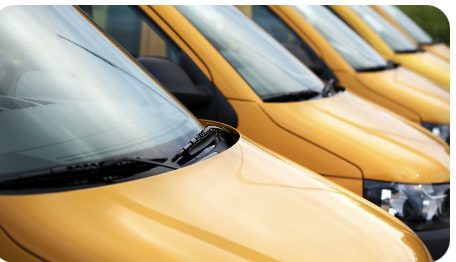Are your fleet vehicles recorded correctly on your motor insurance policy?

When reviewing motor fleet insurance for business and farm customers we sometimes come across vehicles that have been purchased and registered in a family members name, but these members of family may live at different addresses and/or may not be part of the family business. These vehicles have been added incorrectly and you run a high risk of the insurance policy not responding if you need to claim.
What vehicles can be included on a fleet policy:-
The vehicle is owned by/or leased to the business or a partner/director in the business (some insurers of policies in a Limited Companies name require those directors with their own vehicles to have their names specified on the policy)
The vehicle is registered at the business address
If the vehicle is paid for (by Cash or Hire Purchase/Lease) in a son or daughters name, this will generally not be covered, and the owner will need to take out separate insurance.
Do I have to be the registered keeper of all the vehicles?
You do not have to be the registered keeper of all vehicles, but the vehicles need to be (or will be) owned and registered by either: you or with some insurers your spouse/civil/domestic partner, your company or is the subject of a private or personal leasing contract.
What’s the difference between a principal policyholder, a vehicle policyholder and a named driver?
The principal policyholder is the person who entered into the contract of insurance on behalf of themselves, each vehicle policyholder and each named driver. They’re the person who took out the policy and they can then choose who is a vehicle policyholder and who is a named driver.
The vehicle policyholder is nominated by the principal policyholder as being the person who drives the vehicle most often
Named drivers are additional drivers nominated by the principal policyholder who are entitled to drive the vehicle under the policy.
The key message here is if you’re planning to purchase or lease an additional vehicle and the ownership or registered keeper is anything other than the business – speak to your trusted advisor to ensure the insurance is arranged correctly and most importantly is valid.



